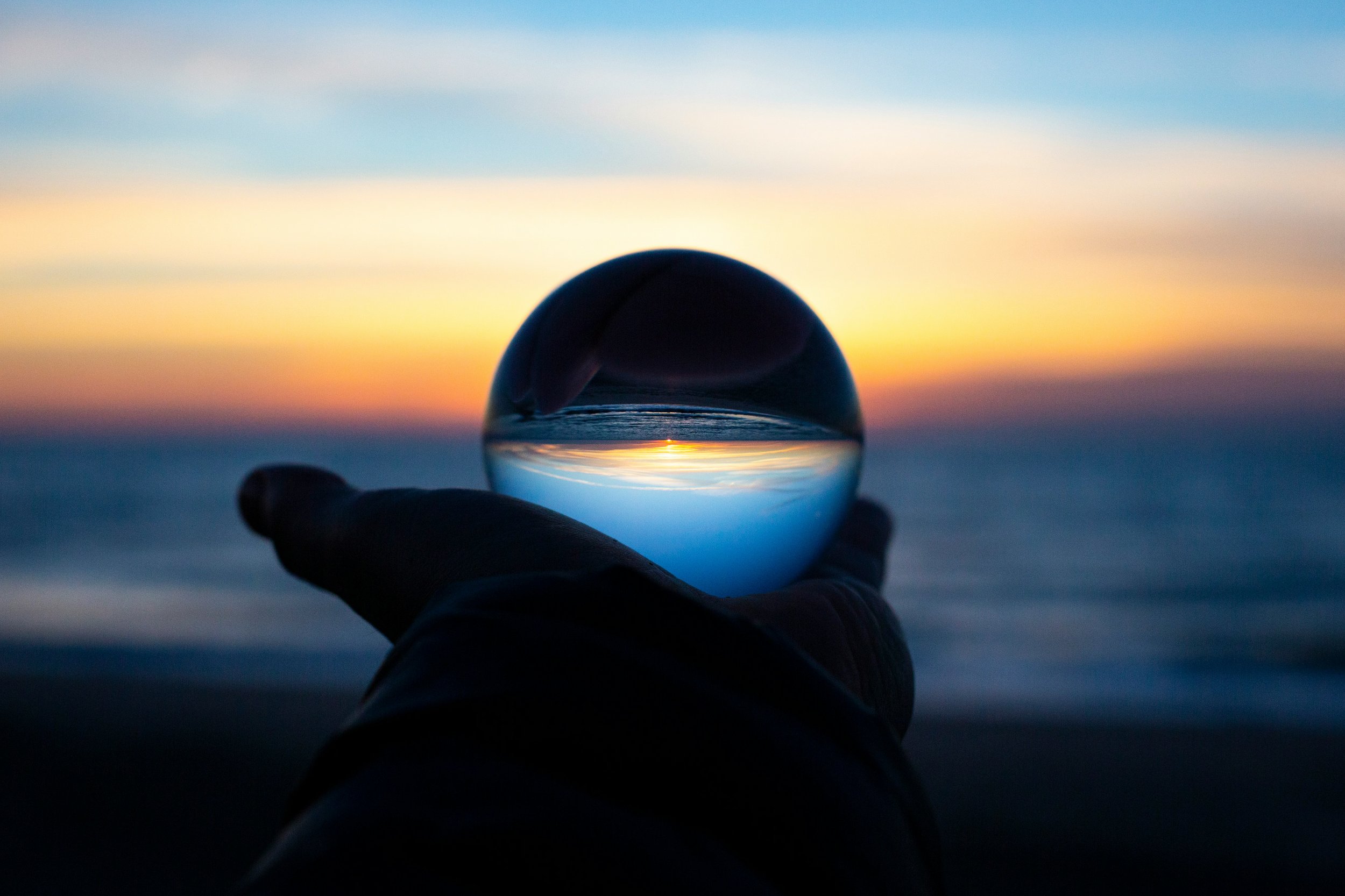Bringing Ancient Wisdom into Our Future
“How do you measure a year in the life?” The lyrics from one of my favorite Broadway musicals, Rent, inquires how we choose to spend our time and what truly matters to us. How do you measure your 525,600 minutes each year? “In daylights, in sunsets, in midnights in cups of coffee…”
We are pulled in countless directions on a daily basis — opportunities, obligations, health diagnoses, milestone celebrations, inconveniences, and invitations. Even the pleasant experiences can be accompanied by stress, anticipation, and sleepless nights.
We precariously balance between trusting that we are safe and bracing for the impact of a crash. We express gratitude for what we have while simultaneously striving to accomplish, achieve, and acquire more.
Mindful meditation has become one of the most prescribed behavioral interventions to mitigate the negative effects of stress.
Mindfulness offers a sense of space and freedom,
a trust and letting go,
a fearlessness and acceptance.
The way my clients describe their experiences with mindfulness are strikingly similar, though the metaphors may vary.
“It feels like something opens up and I have room to breathe.”
“I felt like I was floating in water—weightless, relaxed, and unafraid.”
“It’s like looking out over a vast and expansive landscape.”
A mindful moment brings a peaceful interlude amid a day that otherwise can feel constricted by deadlines, confined by our circumstances, and preoccupied with not having enough (time, resources, agency, etc).
Through the millennia, we have created certain systems to help us maintain order and promote civilization. Concepts like success, timelines, and progress have become our guideposts. We are a society obsessed with saving time and never having enough of it. We have become conditioned to pursue certain necessities (food, sex, currency, etc) to perpetuate our species. These “worldly” qualities are essential to our evolution in many ways.
However, in our pursuits, we seem to have neglected our connection with what is immeasurable and inexplicable.
Chronos vs. Kairos
The ancient Greeks had two distinct words to describe time.
Chronos refers to the world’s time, like clocks and calendars. It’s the quantifiable sense of time that keeps things running smoothly, but also constricts us to schedules and deadlines. We are constantly met with the idea that time is running out or we are running behind it. Chronos tracks what we do, and how and when we do it.
Kairos can be described as spirit’s time. It’s a qualitative relationship with time as an immeasurable moment. It is being so immersed in the present that the paradigm shifts, resulting in a sense of timelessness. It can be elusive in our encounters with it. We can’t track it or grasp it. We simply experience it.
Chronos counts and confines, telling us when we’re late or on time. Kairos puts it in perspective and conveys to us that all things are relative and subjective.
Think about the spectacular images from space that were taken by the Webb telescope in 2022, and the mind-bending revelation that the photos documented something which took place millions of years ago! Whaaaat?!?
The speed of light is chronos (nearly 300 million meters per second).
Our experience of witnessing such a historic phenomena is kairos. Suddenly, time overlaps in way that makes it intangible or imagined.
Kairos is transcendent, infinite and ephemeral. It allows us to simply be who we are in the moment. It’s the peace that comes with being fully present to our experience— a timeless reverence, joy, passion, grief, or love.
Hedonic happiness vs. Eudaemonic happiness
External pleasure vs. Inner purpose
Aristotle, Socrates and his student, Aristippus of Cyrene studied concepts of pleasure, motivation, ethics, and virtue. Through these concepts, the famous philosophers explored the quantitative versus qualitative juxtaposition of the human experience.
Hedonic happiness refers to the world’s pleasures—anything from a delicious meal to a spectacular sunset. Hedonism has gotten a bad rap, as it has become associated with overindulgence or debauchery. Sure, it includes sex and wine, but it’s also about so much more!
Life is rich with hedonic experiences like travel, nature, and art. It’s the pleasant state of mind that comes from an external experience. These encounters can bring us tremendous joy, but research indicates that we will inevitably come back to our baseline level of happiness in what is referred to as hedonic adaptation. Regardless of how wonderful, novel, or climactic the experience, once it has passed, we will eventually return to our ordinary state of mind.
Eudaemonic happiness is the internal joy we experience when we are connected to our deepest sense of purpose or meaning. Holocaust survivor and psychiatrist, Dr. Viktor Frankl, attributed an individual’s self-defined meaning to their degree of motivation and ultimately, even their survival in the most unimaginable circumstances.
If hedonic happiness is an emotional state, eudaemonic happiness is the trait that is cultivated internally in the absence of an external stimulus. It’s a profound contentment that comes from within.
Eudaemonic happiness is self-sustaining and transcends age, status, or income. It’s the peace that comes from being connected to our authentic self. It’s also the sense of true belonging that comes from feeling interconnected with the world around us.
Moving Forward
Modern trends, rooted in ancient tradition, focus on the benefits of expanded states of consciousness which invoke a sense of freedom and possibility.
Concepts such as meditation and breathwork have become more commonplace in the corporate world. Psychedelic-assisted therapies have gained traction among reputable medical and research institutions.
We are entering a chapter in history in which the study of expansive and conscious living are not only respectable subjects, but are also associated with health and vitality. The Greater Good Science Center at UC Berkely conducts research on the physical, psychological, and relational benefits of awe, defined as “an emotion we feel when we encounter vast and mysterious things” (Dacher Keltner).
In multiple studies, subjects who experienced emotions such as amusement and wonder measured lower levels of inflammation in their body tissues and a greater sense of connectedness to their community.
How can we experience these benefits for ourselves?
Give way to astonishment of the Webb images from another space and time. Allow yourself to become lost in the sunset over the vast, open ocean. Feel bewildered at the inherent knowing of a bird’s song or their innate ability to fly in formation. Become inspired by profound examples of human compassion, forgiveness, or courage. Encounter a sense of timeless flow in your work, art, or relationships.
Whereas chronos and hedonic experiences can be narrow and constrained, kairos and eudaemonic experiences offer an expansive and enduring perspective. When we worry about the constraints of time or the finite nature of pleasurable experiences, we tighten our grasp, we doubt, or succumb to fear and scarcity.
When we expand our perspective of time and deepen our sense of the why and who we are (not only what we do), we cultivate trust within.
Seek out moments that evoke a sense of wonder.
Expand your sense of time by slowing down or immersing yourself in the present.
Discover your purpose and meaning by revising your personal mission statement.
Explore what gives you a sense of belonging and interconnectedness.
Deepening our experiential understanding of concepts such as awe, kairos, and eudaemonic wellbeing allows us various ways to access and cultivate peace and health in our lives and in our world.





